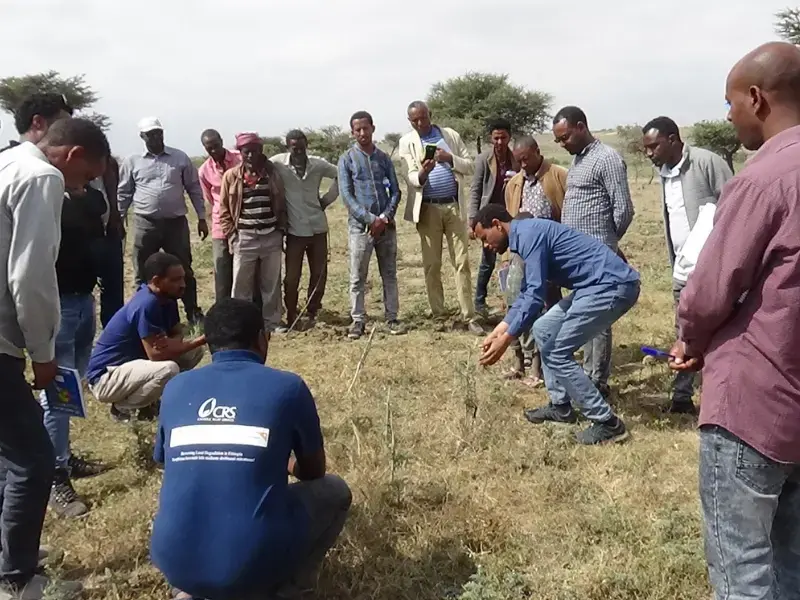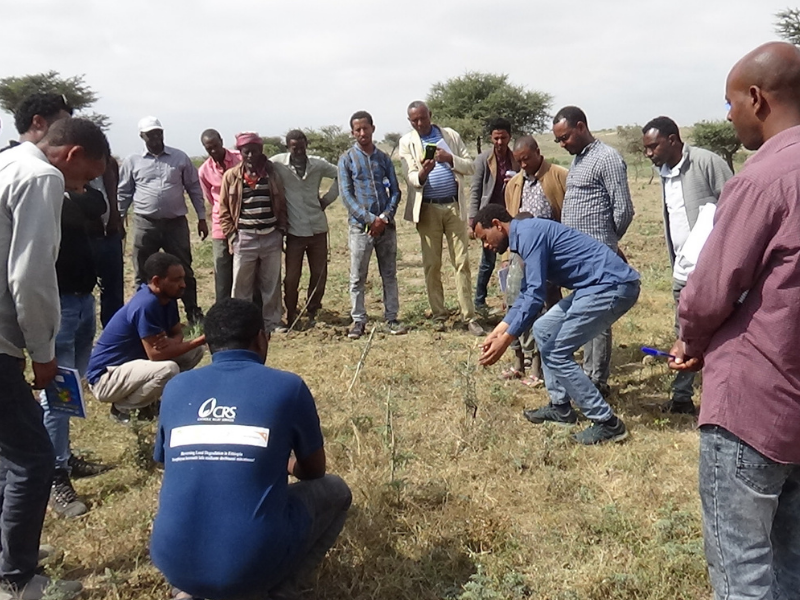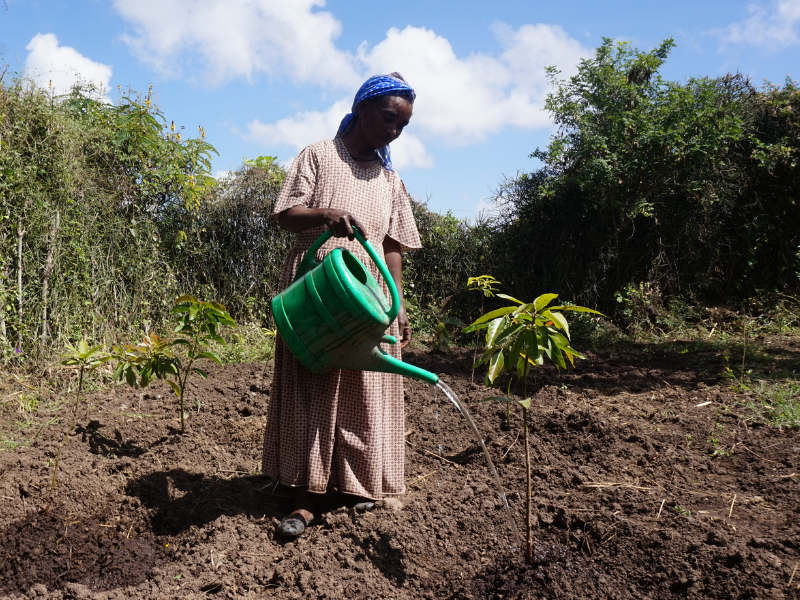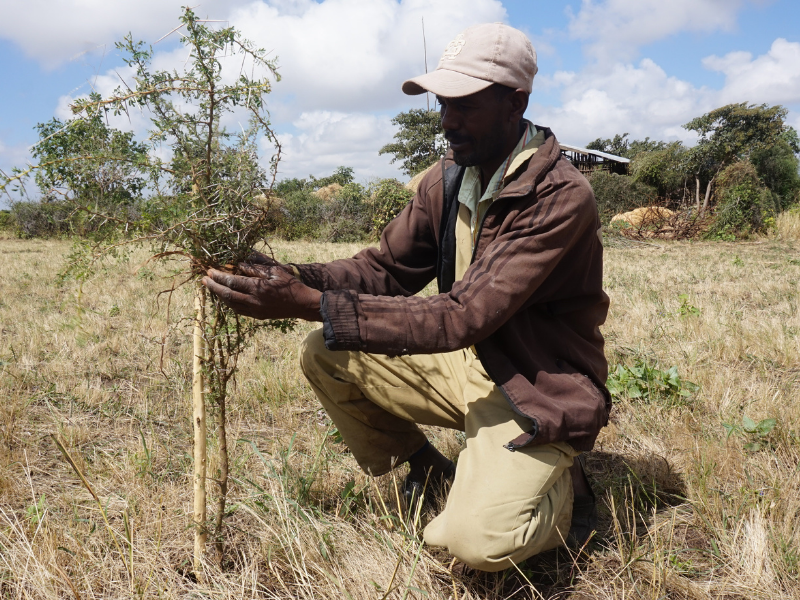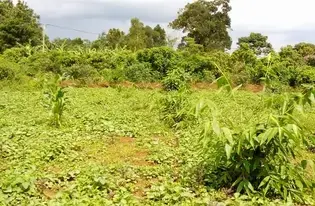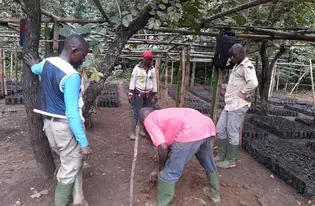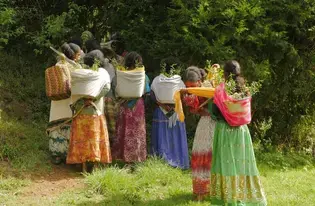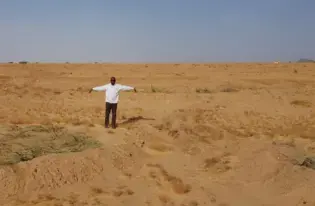Ethiopia’s landscapes and the people who call them home suffer from the consequences of land degradation and drought. Severe soil erosion, deforestation, frequent crop failures and uncontrolled cattle grazing are threatening the long-term food and income security of millions of people.
Regreening Africa with Trees is a five-year project (2017- 2022) that aims to reverse that damage and restore 200,000 hectares of degraded land across 22 districts of the Tigray, Oromia, Amhara, and Southern Nations, Nationalities, and Peoples regions. In total, 120,000 households will benefit.
To restore the degraded landscape and boost the resilience of smallholder farmers to the ever-worsening effects of climate change, the project is providing technical support and building the capacity of local experts, government officials, and community groups. The project is also helping youth groups, school environmental clubs, and communities establish and strengthen tree nurseries and build centers that provide resources and training to rural farmers.
Between 2017 and 2020, over 93,000 households began to restore nearly 106,000 ha of land by embracing the most effective restoration techniques, like farmer-managed natural regeneration, agroforestry, and enrichment planting, for each piece of land. Farmers are now protecting and managing more naturally regenerating trees on their farmland than before as their awareness and knowledge have increased. Women participants who established fruit orchards within their home gardens are also gaining additional income by selling their fruit at markets. Other local people have closed off certain areas of degraded pasture, letting the land heal and become useful once again. By building sustainable tree-based value chains, the project is improving the livelihoods of smallholder farmers.
To monitor its progress, the project team is using the Regreening Africa App, an easy-to-use mobile application that allows field teams to collect biophysical and socio-economic data. The team is also surveying participants once per year to better understand their priorities, concerns, and personal progress.
To scale up their work, the team is taking the best practices that they have learned along the way and is working with district governments to strengthen local governance and existing institutions. Only through fostering local ownership of the outcomes of the project can these key lessons continue to inform future restoration work in these four regions. Now, the team is working with higher-level government officials to incorporate regreening and techniques like agroforestry into their strategic annual workplans.
Regreening Africa with Trees is funded by the European Union and implemented in Ethiopia by Catholic Relief Services (CRS) as the lead organization and is supported by World Vision Ethiopia, the Mekelle and Meki branches of Ethiopian Catholic Church’s Social and Development Coordinating Office of Adigrat (ECC-SDCOAd-B), and the Ethiopia office of the World Agroforestry Centre (ICRAF).
